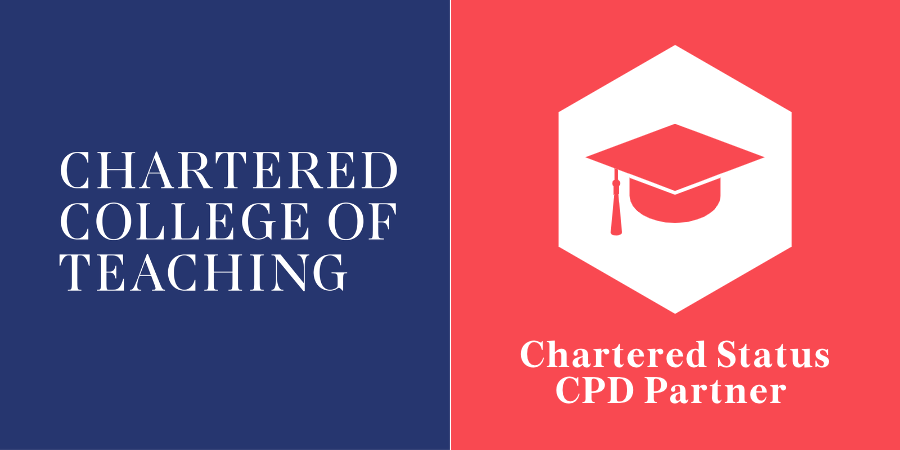“Proud to have achieved this historic partnership”

SUNDERLAND FIRST UNIVERSITY IN UK ACCREDITED AS A CHARTERED STATUS CPD PARTNER
The Chartered College of Teaching, the national professional body for teaching, has today accredited the University of Sunderland as its first Chartered Status CPD Partner.
The accreditation recognises the University of Sunderland for its high-quality and evidence-informed CPD provision in mentoring, making the University one of a growing number of organisations supporting practising teachers towards Chartered Teacher Status.
This is the first time the Chartered College of Teaching has recognised a higher education institution in the UK with partnership status.
Chartered Status CPD Partners support teachers and school leaders in working towards Chartered Teacher Status, by offering high-quality and relevant CPD. Chartered Teacher Status is also a professional accreditation, awarded to teachers and school leaders by the Chartered College of Teaching, which strengthens teaching, mentoring and leadership practice, and benefits the education of children and young people.
The University of Sunderland was awarded the status due to its growing national reputation and longstanding success in developing and supporting school-based mentors. Mentors play a vital role in supporting trainee teachers at the start of their career, through achieving Qualified Teacher Status, and beyond in the early stages of their careers.
Haili Hughes, Principal Lecturer in Mentoring and Professional Development in the School of Education, a renowned speaker and author of the bestselling book ‘Mentoring in Schools’, is currently part-seconded to the DfE to work on Initial Teacher Training (ITT) as an ITT Quality Associate’. Welcoming today’s announcement, she says:“I am so proud to have achieved this historic partnership.”
Adding: “We knew that our mentoring training was high quality but it is great to get national recognition that it is sector leading and it’s great news for our mentors, who can work towards Chartered Status.”
Chief Executive Officer at the Chartered College of Teaching Professor Dame Alison Peacock, said:
“I’m delighted the University of Sunderland has become the first university to become an accredited CPD Partner of the Chartered College of Teaching. Sunderland has been training teachers for over 100 years, and has a growing reputation for developing mentors in their vital role of supporting trainee and early career teachers. Having visited their education department just before the pandemic, I am pleased to be able to continue our relationship, to the benefit of both teachers and pupils.”
Head of Partnerships at the Chartered College of Teaching, Jonny Goggs added:
“We are thrilled to be recognising the University of Sunderland as an accredited CPD partner. The Mentor CPD Curriculum developed by colleagues in the Faculty of Education and Society is robustly and thoughtfully designed, and offers a supportive structure for mentors working towards achieving Chartered Teacher (Mentor) Status. The role of mentors is vital to drive standards and develop beginning teachers, and we look forward to working with the University of Sunderland to provide professional development and formal recognition to mentors across the country.”
The University’s School of Education courses are ranked 12th in the UK (Guardian University Guide, 2023). Over the past two years, the initial teacher training department launched a comprehensive package of training and support for school and college-based mentors to ensure that trainees are fully supported in their professional development as teachers and mentors. The package includes masterclasses on pedagogy, mentoring skills videos, weekly drop-ins and weekly infographics to help mentors provide the best possible phase and subject specific support to trainees.
Professor Lynne McKenna MBE, Dean of the Faculty of Education and Society at Sunderland, who was awarded an MBE in the King’s Birthday Honours list in June for her services to education added:
“As firm supporters of the work of the Chartered College of Teaching, we have worked closely with Dame Professor Alison Peacock for a number of years. Indeed, Alison provided an online session during the first Covid lockdown for our school and college-based mentors and senior school staff as we launched our new approach to mentoring training and support.
“As an Affiliate Member of the Chartered College of Teaching myself, I am extremely proud that our two organisations have come together to provide mentoring support and guidance across the UK and also to offer this as a means for school and college staff to gain Chartered Teacher Status.
“Our work in providing mentoring training and support for our partnership school and college-based mentors has been at the heart of our initial teacher training model since the DfE published their first set of mentoring standards in 2016. Since the introduction of the Core Content Framework for Initial Teacher Training (2019) and the Early Career Framework (2021), we have been innovative in our approach and have placed mentoring as the central feature of our initial teacher training curriculum to support trainees to become expert teachers.”
The key appointment of Haili Hughes, a recognised expert in Mentoring in 2021, took the University’s provision to the next level as recognised in Sunderland’s recent Ofsted inspection report (June 2023) which states that:
‘….leaders have transformed the support that mentors receive to deliver their part of the ITE curriculum. For example, mentors talked enthusiastically about the many improvements that they have seen in communication across the partnership. They also explained how they value the ITE documentation that they receive from tutors at the University of Sunderland. For instance, mentors were delighted with the passports and learning journeys that enable them to understand how the ITE curriculum is structured and assessed in the FES phase.’
‘most mentors access a wide range of training to develop their understanding of their role and what is being delivered in the centre-based training. Through this training, most mentors develop their own knowledge of new theories and practices, and they link these to their subjects’











Responses